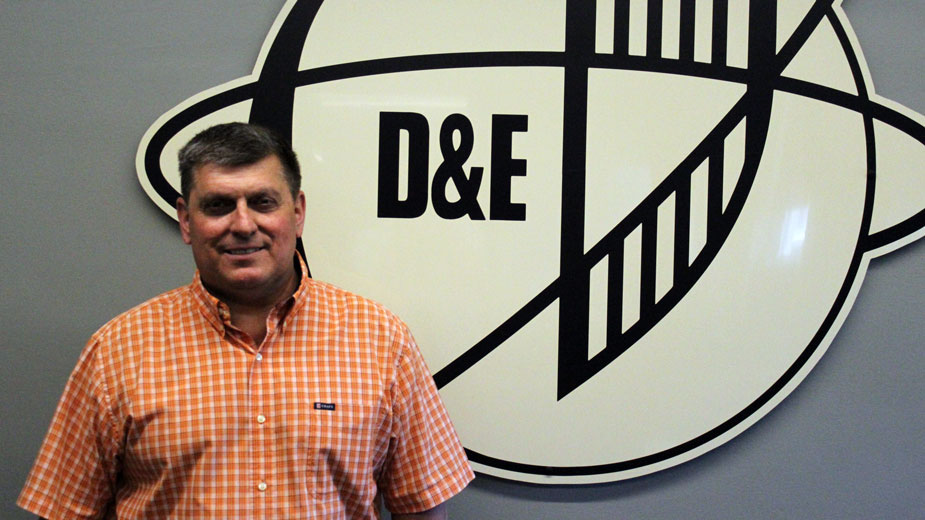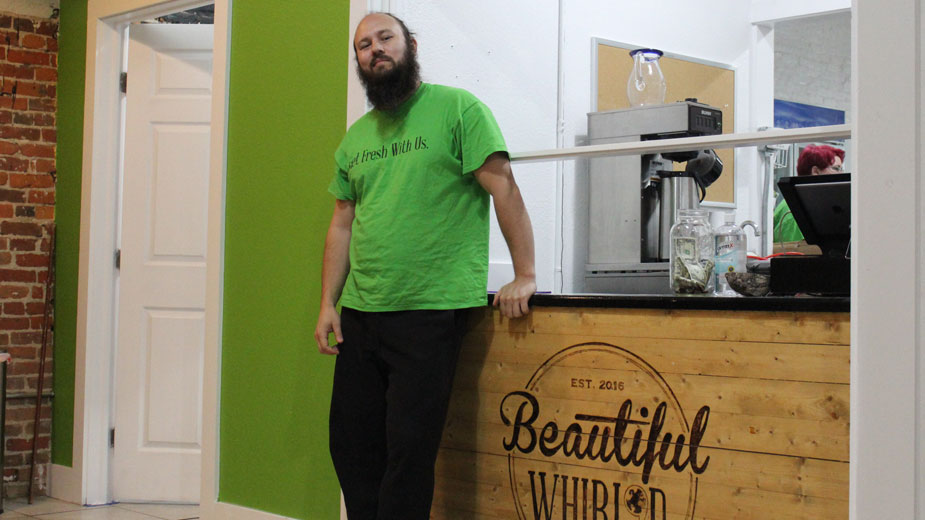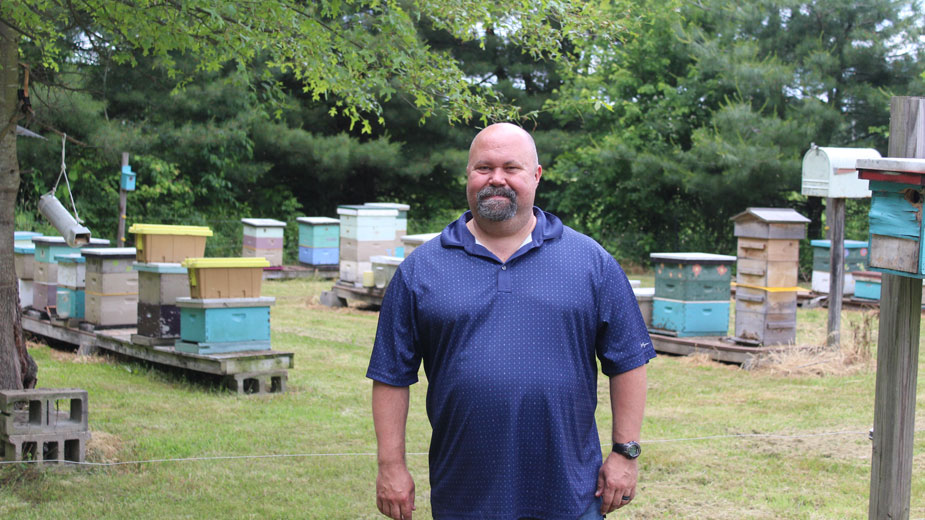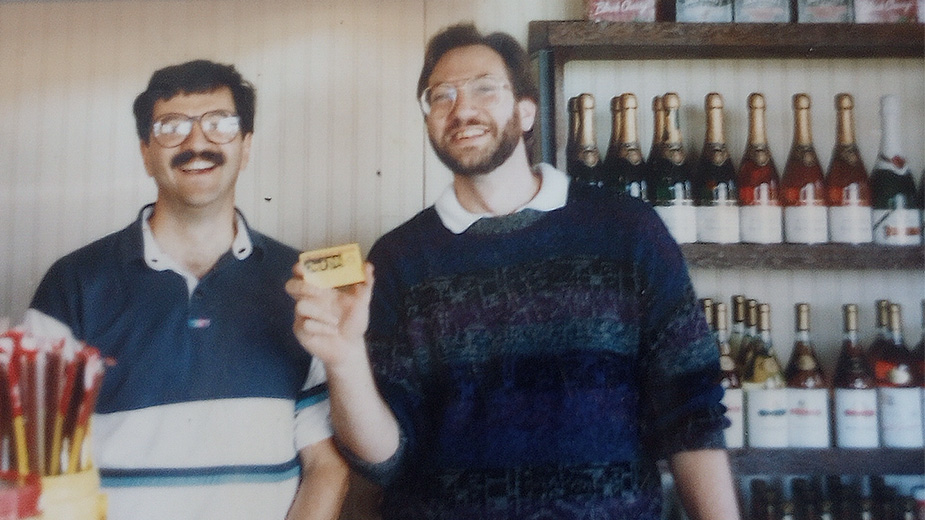Army Careers Set Stage for Entrepreneurship
YOUNGSTOWN, Ohio – Much attention is given to the technical skills you can pick up through a career in the military. But many who serve in the military also pick up the skills that set them on a path to entrepreneurship, regardless of whether they recognize it at the time.
When he first approached the Youngstown Business Incubator’s Barb Ewing and Jim Cossler, Rich Lonardo’s business idea was simply “making widgets,” he says.
But the more the three talked, the more Cossler pushed him to use the expertise he acquired over a 21-year career in the Army.
Upon graduating from Youngstown State University in 1989, Lonardo was immediately commissioned a second lieutenant after he spent two years in the university’s Reserve Officers’ Training Corps program.
“Initially, I didn’t think I was going to stay in. I was going to do three years and get out. But the Army kept giving me leadership opportunities,” he says.
He served as an aide to Gen. William Pagonis during the Gulf War, was a professor at the United States Military Academy for three years, worked as a liaison between the Army and companies such as General Motors Co. and, finally, as a technology integrator with U.S. Central Command before leaving the Army in 2010.

While there were plenty of lessons he learned in those first two military positions, it’s his work with industry and technology that led Lonardo to found Defense & Energy Systems the same year he retired from the military.
“We work with the Youngstown Business Incubator, America Makes, YSU and industry partners to accelerate technological transition and capability into the Department of Defense,” he says. “It’s a neat way to continue to serve. It’s fulfilling because I want to make sure our fighters have that technical edge, but we can bring a regional flavor to that.”
As a consulting firm, Defense & Energy Systems helps companies to get into the defense supply chain, either as direct sellers to the Department of Defense or by supplying original equipment manufacturers.
“There are companies in our area that are part of the vast supply chain that can supply OEMs with the parts that can be used for aircraft or ships or tanks,” Lonardo says.
He says much of the consulting assistance he provides centers on helping businesses understand technical language and requirements.
But his Army career gave him much more than expertise, Lonardo adds. And he’s not alone in that belief.
“It gave me the confidence and motivation that I needed to step into this. I didn’t really know what I was doing – none of us really did – when Beautiful Whirl’d opened,” says Clint Elston, co-founder of the Warren cafe and smoothie shop. “I don’t know that I would have jumped in so quickly if it wasn’t for those life experiences.”
Elston enlisted in the Army Reserves in 2001, a few months before he graduated from high school, as a way to pay for college. He spent nine years in the service with a unit specializing in the mitigation of chemical, biological or nuclear attacks.

“It was almost like a car-wash line where everyone would come through and we’d make sure they were cleaned well. We’d test them on the other end to make sure there’s not chemical or biological matter or whatever kind of attack it was, that there’s no contamination,” he explains. “We’d divide people up into lines. Some were nonambulatory lines where we’d strap them to a stretcher and roll them down as we cleaned them.”
Three times, Elston says, he was set to be deployed before the deployment was canceled.
“At first, you’re thinking, ‘Oh crap,’ but then you start to prepare and embrace it. You start warming up to it and looking forward to it,” he recalls. “Each time, right when I started looking forward to it, they’d say I’m not going. You have to wind down from that.”
After leaving the Army Reserve in 2011, Elston worked a few different jobs before meeting his wife, Mary, while he was a lifeguard at Nelson Ledges Quarry Park. In 2016, she told him about the venture she had created – which would eventually become Beautiful Whirl’d – with her friend Mary Peronne. With little entrepreneurship experience between them, Clint Elston says his time in the Army Reserve gave him the leadership skills needed to help to get the business off the ground.
“Seeing how the sergeants modeled their role as an authority figure, I was able to learn from them how to lead,” he says. “It’s influenced me not only as a business owner but as a father as well.”
Looking back on his nine years in the Reserves, what Elston remembers most fondly is the bond he formed with those in his unit. It’s a common theme among those who’ve served in the armed forces.
“It teaches you discipline, a good work ethic and you have to work with everybody,” says Ed Wolfinger, who runs FarmGirl’s Honey and FarmGirl’s Artful Clutter & Such in North Bloomfield with his wife, Kimmer. “I had a very diverse group of buddies and everybody was friends with everybody. That helped me more than anything when I got out.”
The couple started beekeeping in 2009, two decades after he enlisted in the Army straight out of high school.
He served for five years, until 1994, as a turbine mechanic. His first deployment was during the Gulf War in Saudi Arabia and Iraq, where he worked with an Apache helicopter unit before eventually being stationed in Germany to work with a Patriot missile launcher unit.
While the mechanical skills he acquired haven’t exactly translated to beekeeping, Wolfinger says being able to combine the soft skills he learned with his lifelong passion for being an outdoorsman has helped him to operate FarmGirl’s with Kimmer.

“It made it easier to talk to people. It made me open up,” he says of his time in the Army. “It’s something I stumbled into. My wife has a teaching degree and I’ve taught hunter’s safety courses for 25 years now. Getting out and talking to people is something I’ve always liked to do, so this is another avenue to get people into the outdoors.”
With their work as entrepreneurs, Lonardo, Elston and Wolfinger are bringing back more than technical skills and expertise. The biggest return, Defense & Energy Systems’ Lonardo says, is the leadership. To foster the next generation, Defense & Energy hires veterans when possible and brings on interns, including a current cadet at the U.S. Air Force Academy.
“All the services spend a lot of time developing the officer corps and noncommissioned officer corps. It’s like getting a Ph.D. in leadership throughout your career. Then you can bring that to bear as you continue to serve in the civilian sector,” Lonardo says. “There are so many opportunities to take that leadership investment that the DoD put into us – and that taxpayers paid for – and then give it back to our region.”
Copyright 2024 The Business Journal, Youngstown, Ohio.


